Fun Facts about English
Part 2
See also: 10 Fun Facts about English
Do you love English? A lot of people do. According to some websites, about 980 million people worldwide speak English as a first or second language! The English language is popular all over the world.
It is widely spoken in many countries including Canada, Australia, Barbados, Belize, Guyana, New Zealand, United Kingdom, and the United States of America
Click Here for Step-by-Step Rules, Stories and Exercises to Practice All English Tenses
The English language has an interesting history. It has changed over time, and it continues to change every day. There are new words added every year, and definitions constantly change. The English language is also full of words with strange meanings.
This is Part 2 of this series with 8 new facts about the English language. You can read Part 1 of this series here: 10 Fun Facts About English.
Fact 1:
English borrows words from many other languages.
Wow! English has a lot of words! It may be true, but many words that you think are English are actually borrowed from other languages. I and we are among some of the oldest English words, but many other words originate from other languages around the world. In fact, there are probably some English words that came from your native language.
Here are some of our favorites:
- waltz:
a type of formal dance
origin: German

Let's dance the waltz.
- karaoke:
a form of entertainment where people sing popular songs
with music,
following words on a screen
origin: Japanese
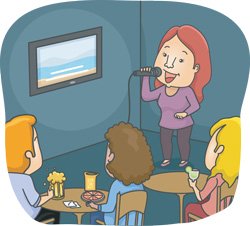
They are having fun at the karaoke bar.
- chocolate:
candy made from ground cacao seeds
origin: Nahuatl (a Native American language)

You should not eat too much chocolate.
- their:
a possessive pronoun
origin: Old Norse "peir"

Their house is on Main Street.
- dollar:
the basic monetary unit of the United States of America, Canada,
Australia, and other countries
origin: Czech through Dutch

He won hundreds of dollars.
- very: in
a high
degree (used for emphasis)
origin: Old French "verai", meaning "true"
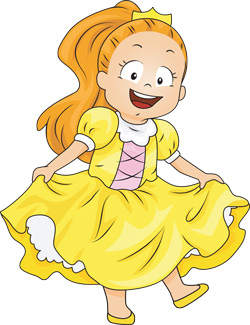
She is very happy!
- zero:
no quantity or number
origin: Arabic
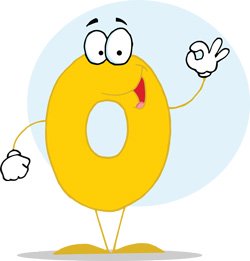
Three minus three equals zero.
- war:
armed conflict
origin: Old French "werre"

No body wins in a war.
- skunk:
a mammal with black and white fur
origin: the extinct language of the Algonquian people (a North American native people)
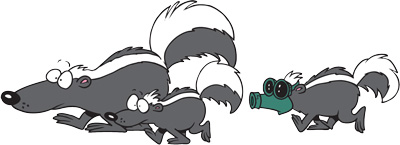
Skunks produce a strong unpleasant smell to defend themselves when attacked.
Fact 2:
Some "silent letters" were added on purpose.
Many English words with silent letters (letters that you do not pronounce) used to be spelled phonetically (spelled the way it is pronounced).For example, debt used to be spelled det.
Around the 16th century AD, English scholars added silent letters to some words to link them to their Greek and Latin origins. Some of these origins were later found to be the incorrect origins.
Det is now spelled debt to link it to the Latin word for debitum (= debt).
Sissors is now spelled scissors to link it to the Latin word scindere (= to split up or divide).
Ake is now spelled ache to link it to the Greek word akhos (= pain, grief, or distress).
Fact 3:
The word "set" has 430 definitions!
The Second Edition of the Oxford English Dictionary was published in 1989. In that dictionary, the word set has 430 definitions! It currently holds the record for the most definitions.Set is not the only word in English with hundreds of definitions. Here are the runners-up in the 1989 Oxford English Dictionary:
- run (396)
- go (368)
- take (343)
- stand (334)
- get (289)
- turn (288)
- put (268)
The editor of the Oxford English Dictionary says that the word run now has at least 645 meanings.
However, the next edition of the Oxford English Dictionary won't be published until 2037, so set still holds the official record for the word with the most definitions.

Fact 4:
Bald Eagles are not actually bald.
Some words in English have many definitions. The word bald is an adjective that means "lacking hair." A bald person does not have hair on their head.
But an American Bald Eagle (the bird used as a symbol of the US) is not actually bald. The name
Bald Eagle comes from the old English word balde, which means white. The name Bald
Eagle refers
to the eagle's white feathers.
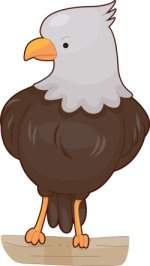
Fact 5:
"Hello" was not a greeting until the telephone arrived.
What do most English speakers say when they answer the phone?What do English speakers say when they are introduced to someone new?
But the word hello did not actually become popular as a greeting until the telephone arrived. It was originally used as a way to get someone's attention.
"Hello! Are you listening to me?"
Thomas Edison, an inventor, wanted people to say "hello" when answering the phone.
Alexander Graham Bell, the inventor of the telephone, wanted people to say "ahoy" when answering the phone.
Thomas Edison won. The
first telephone
books included a "how-to" section on the first few pages, and hello was used as
the official greeting for the telephone.

Fact 6:
"Goodbye" is a contraction of "God be with ye."
The word goodbye (good bye, good-by, good-bye) is an English word commonly used as a acknowledgment when leaving. It is also the common word used when ending a phone conversation.The word goodbye is actually a contraction of God be with ye (ye = you), from the later 14th century. It was influenced into use by phrases such as good day and good evening. Intermediate forms of this word are God be wy you, God b'uy, God buoye, and God buy,
Fact 7:
The 26 letters in the English alphabet make up over 40 individual sounds.
There are 26 letters in the modern English alphabet, but those letters make over 40 distinct sounds. Many letters have more than one pronunciation.For example:
- The letter C: cool (kewl), city (sity)
- The letter D: dog (dawg), jumped (jumpt)
- The letter T: sit (sit), watch (wach)

Fact 8:
The history of the English language can be traced back to the 5th century AD.
The English language has a lot of history. Historians have traced the
history of English back to 5th century AD. English is actually a West
Germanic language. The language originated from dialects
brought to Britain in the mid 5th to 7th centuries AD by Germanic
invaders and settlers.
Old English changed into Middle English and then into Modern English.
There have been many additions of words and changes in pronunciations
and spellings.
There have also been changes in vowel
sounds and many grammatical
changes over the years. Definitions have also been added and changed.
Language is always growing and changing.

See also: 10 Fun Facts about English
Get Updates, Special Offers, and English Resources
Download your FREE GIFT (the first two chapters of
English Short Stories Book and Workbook)
as soon as you join!

By submitting your email, you consent to receiving updates and newsletters from us and to the sharing of your personal data with third parties for the purposes of sending you communications. We will not spam you. You can unsubscribe at any time. For more information, please see our privacy policy.
Return
from Fun Facts About English - Part 2 to Why Learn English – Reasons to Learn English





